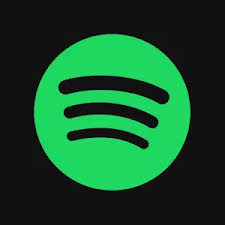There are other ethical concerns of utilising Spotify MODs which includes the legal, artists' pay and industry level perspective. To understand more about these implications, let us check out the data, terminology and some examples along with expert opinions and factual answers related to this practice.
Data Firstly, the data illustrates that Spotify MODs are experiencing widespread adoption. At least 10% of Spotify's users are believed to have benefited from modified apps that can scrape the protections off… This contributes to massive revenue loss for SOUNDCLOUD, and forces the platform into poor salaries when paying streams. Spotify's subscription revenue in 2023 was about $10 billion, and a loss of just 10% due to MOD usage could leave the music industry suffering gap worth up to as much as $1B.
We are talking about piracy, intellectual property and royalties. It is considered digital piracy - the act of using or distributing copyrighted content without permission. This practice diminishes the royalties that artists, songwriters and producers rely on for their livelihoods. Who knows, artists make a fraction of a cent for every stream on Spotify and mods pretty much completely bypass this payment system.
Other areas of history in business point also to such concerns. This phenomenon of mass piracy in the early 2000s resulted in massive losses for software companies which led to a tightening-up and more secure licensing including enforcement. In the music industry for example, during the late 1990s once illegal downloading harvesting platforms like Napster rose to prominence and sales of records did so in a free-fall nosedive that foundered into digital era somehow brought on by requirements development or new business formats.

Quotes from key industry figures emphasise the moral quagmire. David Byrne, former lead singer of the Talking Heads proclaimed "the Internet will suck all creative content out of the world. Writing in the Senate report, he warns that "even though downstream users of this technology promise to tiptoe through a minefield for reasons fully unrelated to copyright infringement," fears are present all around piracy and wildcat amending will have secondary consequences -- debasing artistic labor so much it becomes ruinous to attempt new content.
Answering common questions with true answers gives a direct hit to the Ethics. One of the questions that we get on many occasions is users asking "Are Spotify MODs illegal?" Best to worst the answer is a very clear yes. Something to note is that both the original and modified versions of Spotify are in some ways copyright violations as per their ToS. The reason Legal consequences also include but are not limited to account bans, monetary fines and distributors of these MODs being subject to legal action. There is one more question which comes up in very first number, and that is Do Spotify MODs hurt the artists? The answer is also yes. When possible, MOD users avoid paying subscription fees, which means artists do not receive the compensation they are entitled to from their work-effectively taking money away from people who need it and causing a bigger impact on all of music.
From the standpoint of morality, it is evident that Spotify MODs are against ethical principles. Not only is this practice an act of digital piracy, it dismisses the rights to intellectual property and removes capital earned by artists. A fair share of the reason that creators continue to create around the world is because they actually receive money for what they do. Music needs a compensation model in order for artistry and innovation to thrive in an economic context Anyone that cares about the artist and sender needs to use official means of music consumption, as well as paying for them. Visit Spotify MOD for more info and alternatives to the spotify mod versions